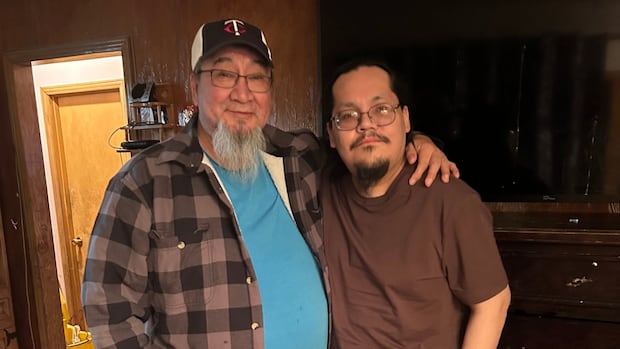Indigenous Services Canada’s headquarters takes on average more than a year to process applications for Indian status, according to a new report by Canada’s auditor general.
The audit found that over a period from 2019-2024, although there is a service standard to make a decision within six months, over 80 per cent of applications processed by Indigenous Services Canada (ISC) headquarters exceeded this. The average processing time was just under 16 months.
“People are waiting far too long for decisions,” said Auditor General Karen Hogan at a news conference in Ottawa Tuesday.
“Registration under the Indian Act plays a central role in the recognition of First Nations people under Canadian law.”
The report notes the long wait times are a barrier to accessing vital services such as on-reserve housing, health benefits and financial aid for post-secondary schooling.
“Taking 16 months to make a decision is a long time for someone to be waiting to find out if they can access benefits that they have the right to under Canadian law,” said Hogan.
“I think many would ask themselves if the Canadian Public Service can process an important document like a passport in a timely way, why can’t they make a decision under the Registration Act in a timelier way?”
12,000 application backlog
The report says Indigenous Services Canada headquarters and its regional offices made decisions on about 140,000 registration applications from April 2019 to March 2024. Just over 58,000 of these were related to Bill S-3 amendments to the Indian Act, meant to rectify sex-based inequities.
There was a backlog of almost 12,000 applications, with nearly 1,500 of those delayed more than two years.
The report recommends that ISC examine its application processing to find ways to reduce wait times, and establish a plan to reduce the backlog.
The departments’ regional offices, which process only non-complex applications, made about 40 per cent of the application decisions during the time frame. There, decisions were made the same day for 22 per cent of applications. On average, decisions took 44 days.
A look at what an Indian status card is, what it does and how to apply for one.
The report also found the department was unable to show that most officials who were making final decisions on applications had undergone the required training and certification.
The audit also recommends ISC fully implement the policies it has in place for processing applications, including training and certification for those making decisions.
ISC’s response in the report says, “As of March 31, 2025, all officers rendering decisions on behalf of the Indian Registrar have been certified under the new standardized training with requirements for re-certification every three years.”
Below minimum wage for community-based registrars
Indigenous Services Canada is mandated to gradually transfer responsibilities to First Nations communities. The department is funding community-based registration administrators to support delivering the registration program.
However, the funding formula for these positions has remained relatively unchanged since 1994, the audit says. Almost 30 per cent of communities with registration administrators receive the minimum funding of $5,000 annually to staff the position.
“The department noted that this is the equivalent of supporting a community-based registration administrator one day a week at $12.80/hour — which was below the minimum wage in all provinces and territories,” the report said.
“Without proper funding and the ability to be properly trained, First Nations communities aren’t going to be well equipped to take this on,” said Hogan.
The report recommends ISC work with First Nations communities and tribal councils to review and update this funding model.
In the report, ISC agrees wiuth the recommendation but says it doesn’t currently have a source of funding to deliver on any increases in compensation.
Minister agrees with recommendations
In a statement, Indigenous Services Minister Mandy Gull-Masty said she agrees with the report’s recommendations and sees the audit as a tool to enhance fairness and efficiency of the registration process.

She said work is being done to move from paper applications toward a digital format in an effort to reduce processing times and minimize errors.
“Last month, I also announced the introduction of Bill S-2 into the Senate, which addresses some of the remaining inequities in the registration and band membership provisions of the Indian Act,” said Gull-Masty in the statement.
This bill would ensure equal treatment for people with a family history of enfranchisement, where First Nations people were encouraged to give up their status, support those who want to deregister and allow women who were automatically transferred to their husband’s band the opportunity to reaffiliate with their natal band.
“Indigenous Services Canada is working in partnership with First Nations communities to make sure that registration services are delivered with integrity, respect, and a strong focus on client service,” Gull-Masty said in the statement.






